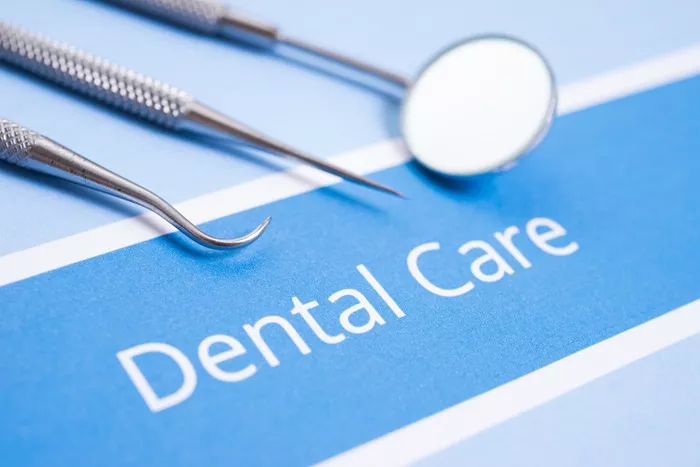As we age, maintaining good oral health becomes increasingly important, yet it often becomes more challenging. Dental issues such as tooth decay, gum disease, and the need for dentures or implants are more common among seniors. Dental insurance can significantly alleviate the financial burden associated with these dental care needs. This article delves into what constitutes good dental insurance for seniors, the types of plans available, their costs and benefits, coverage specifics, integration with Medicare, and how to enroll.
Importance of Dental Insurance for Seniors
Oral health is closely linked to overall health, particularly for seniors. Poor dental health can exacerbate chronic conditions such as diabetes and heart disease, and can also impact nutrition and quality of life. Despite its importance, many seniors face significant out-of-pocket expenses for dental care. Dental insurance can help manage these costs, ensuring that seniors receive the necessary care without financial strain.
Unique Dental Care Needs of Seniors
Seniors often require more extensive dental care due to:
Tooth Decay and Loss: Aging increases the risk of tooth decay and loss, necessitating more frequent dental visits and procedures.
Gum Disease: Periodontal disease is prevalent among older adults, requiring specialized treatment.
Restorative Procedures: Many seniors need crowns, bridges, dentures, or implants.
Dry Mouth: Often a side effect of medications, dry mouth can lead to increased tooth decay and gum disease.
Oral Cancer: Regular screenings are vital as the risk of oral cancer increases with age.
Types of Dental Insurance Plans for Seniors
Understanding the types of dental insurance plans available can help seniors choose the best option for their needs.
Preferred Provider Organizations (PPOs)
PPO plans offer a network of dentists who provide services at discounted rates. These plans offer flexibility, allowing seniors to visit any dentist, but with lower costs for using in-network providers.
Health Maintenance Organizations (HMOs)
HMO plans require members to use a network of dentists and often involve selecting a primary care dentist. These plans typically have lower premiums and out-of-pocket costs but offer less flexibility in choosing providers.
Indemnity Plans
Also known as fee-for-service plans, indemnity plans offer the greatest flexibility, allowing seniors to visit any dentist. These plans usually involve higher out-of-pocket costs, with the insurer reimbursing a percentage of the total charges.
Discount Dental Plans
These are not insurance plans but offer discounts on dental services from participating dentists. Members pay an annual fee to access these discounted rates.
Costs and Benefits of Various Plans
Costs
Premiums: Monthly premiums vary based on the type of plan, coverage level, and geographic location. PPO and indemnity plans generally have higher premiums than HMOs.
Deductibles: The amount you pay out-of-pocket before the insurance starts to cover expenses. Deductibles can range from $50 to $150 annually.
Co-pays and Co-insurance: Co-pays are fixed amounts paid for specific services, while co-insurance is a percentage of the service cost that the insured must pay.
Benefits
Preventive Care: Most plans cover preventive services such as cleanings, exams, and X-rays at 100%.
Basic Procedures: Fillings, extractions, and periodontal treatment are typically covered at 70-80% after the deductible is met.
Major Procedures: Crowns, bridges, dentures, and implants may be covered at 50%, with some plans offering higher coverage levels.
Senior-Specific Discounts: Some insurance providers offer discounts or tailored plans specifically designed for seniors, often with benefits like enhanced coverage for dentures or implants.
See Also: How Does Health Insurance Through Employer Work
Coverage for Common Dental Procedures
Seniors often require specific dental procedures that should be considered when choosing a plan.
Dentures
Dental insurance plans for seniors typically cover a significant portion of the cost for dentures, including complete and partial sets. However, there might be waiting periods and annual maximums to consider.
Implants
While some plans do not cover dental implants, others provide partial coverage, often up to 50%. Seniors should look for plans that specifically include implants if they anticipate needing them.
Routine Care
Regular check-ups, cleanings, and X-rays are generally fully covered by most dental insurance plans. These preventive services help catch issues early and maintain oral health.
Crowns and Bridges
Most plans cover a percentage of the cost for crowns and bridges after the deductible is met. Coverage can vary, so it’s essential to compare plans.
Waiting Periods for Certain Procedures
Dental insurance plans often have waiting periods for major procedures. This means seniors might have to wait a specific period, typically 6-12 months, before the insurance covers services like crowns, bridges, or dentures. Preventive care and basic procedures usually have no or shorter waiting periods.
Integration with Medicare or Other Health Insurance Plans
Medicare does not cover most dental care, dental procedures, or supplies. However, some Medicare Advantage plans (Part C) may offer dental benefits. Seniors should check if their Medicare Advantage plan includes dental coverage and how it integrates with additional dental insurance.
Supplemental Dental Insurance
Seniors can purchase supplemental dental insurance to cover services not included in Medicare or Medicare Advantage plans. These supplemental plans work alongside Medicare to provide comprehensive dental care.
Dual Coverage
Seniors with multiple insurance plans need to understand how their dental insurance coordinates with other health insurance policies to avoid gaps in coverage and maximize benefits.
How to Enroll and Eligibility Criteria
Assessing Needs
Seniors should evaluate their dental health needs, budget, and preferred level of coverage before choosing a plan.
Comparing Plans
It’s crucial to compare different plans based on premiums, coverage, provider networks, and out-of-pocket costs. Online comparison tools and insurance brokers can assist in this process.
Enrollment Periods
Enrollment periods may vary depending on the insurer and plan type. Some plans offer open enrollment periods, while others allow year-round enrollment.
Application Process
The application process typically involves providing personal information, selecting a plan, and paying the initial premium. Some plans may require a health questionnaire.
Conclusion
Choosing the right dental insurance plan is essential for seniors to maintain their oral health and manage the costs associated with dental care. By understanding the different types of plans, their costs and benefits, coverage details, and how they integrate with other health insurance, seniors can make informed decisions that best suit their needs. Comparing plans, reading reviews, and understanding insurance terms can help seniors find the most suitable and cost-effective dental insurance coverage.
[inline_related_posts title=”You Might Be Interested In” title_align=”left” style=”list” number=”6″ align=”none” ids=”2352,2298,2255″ by=”categories” orderby=”rand” order=”DESC” hide_thumb=”no” thumb_right=”no” views=”no” date=”yes” grid_columns=”2″ post_type=”” tax=””]




















